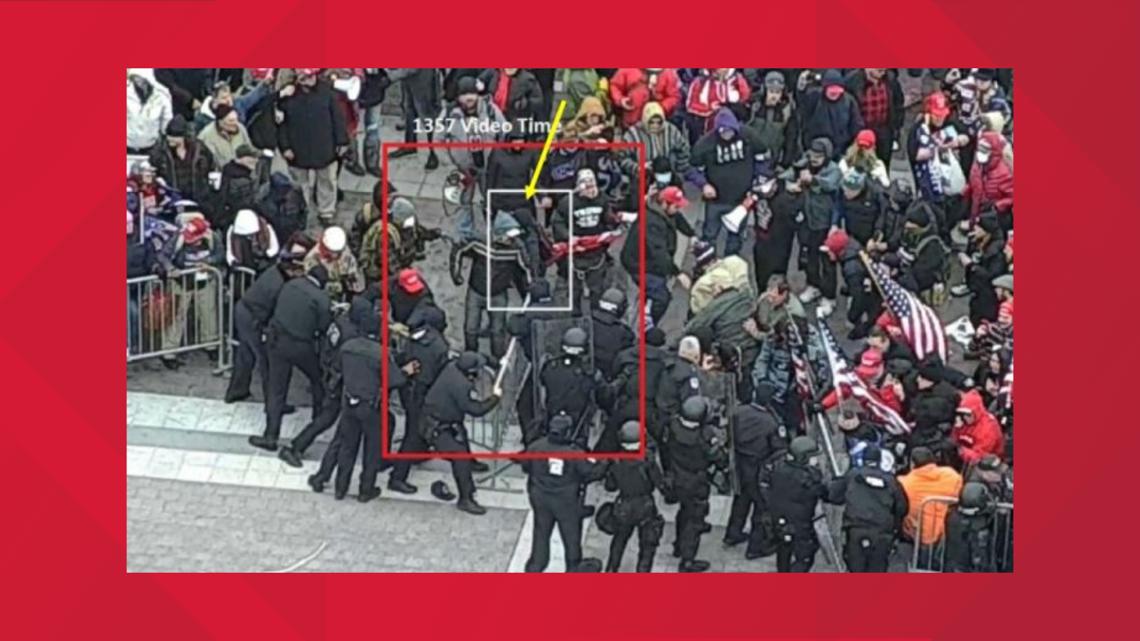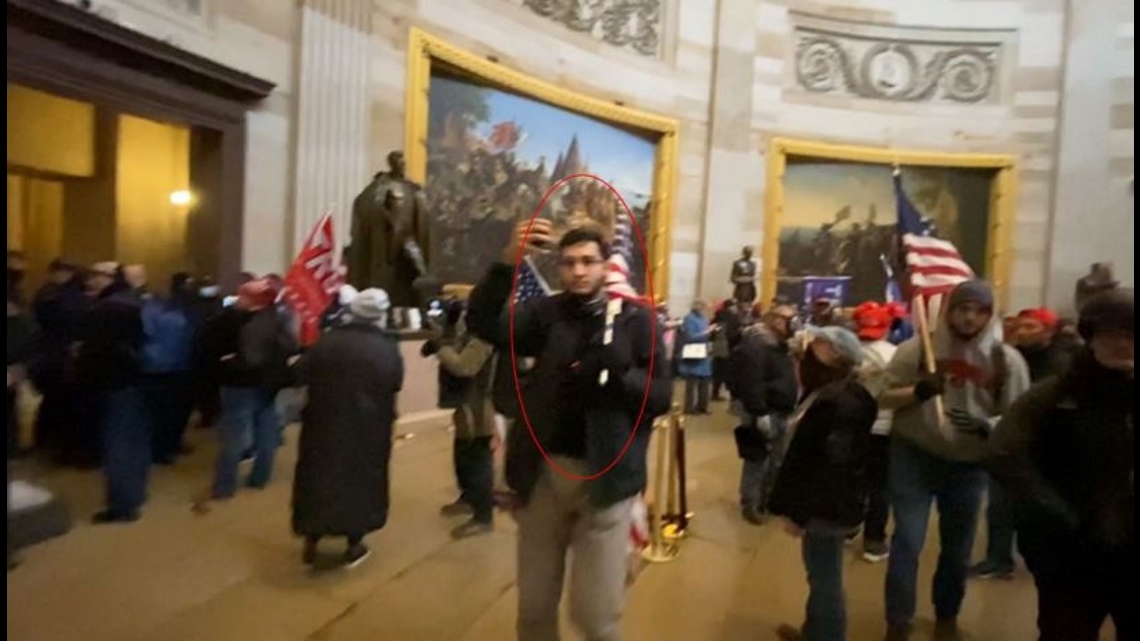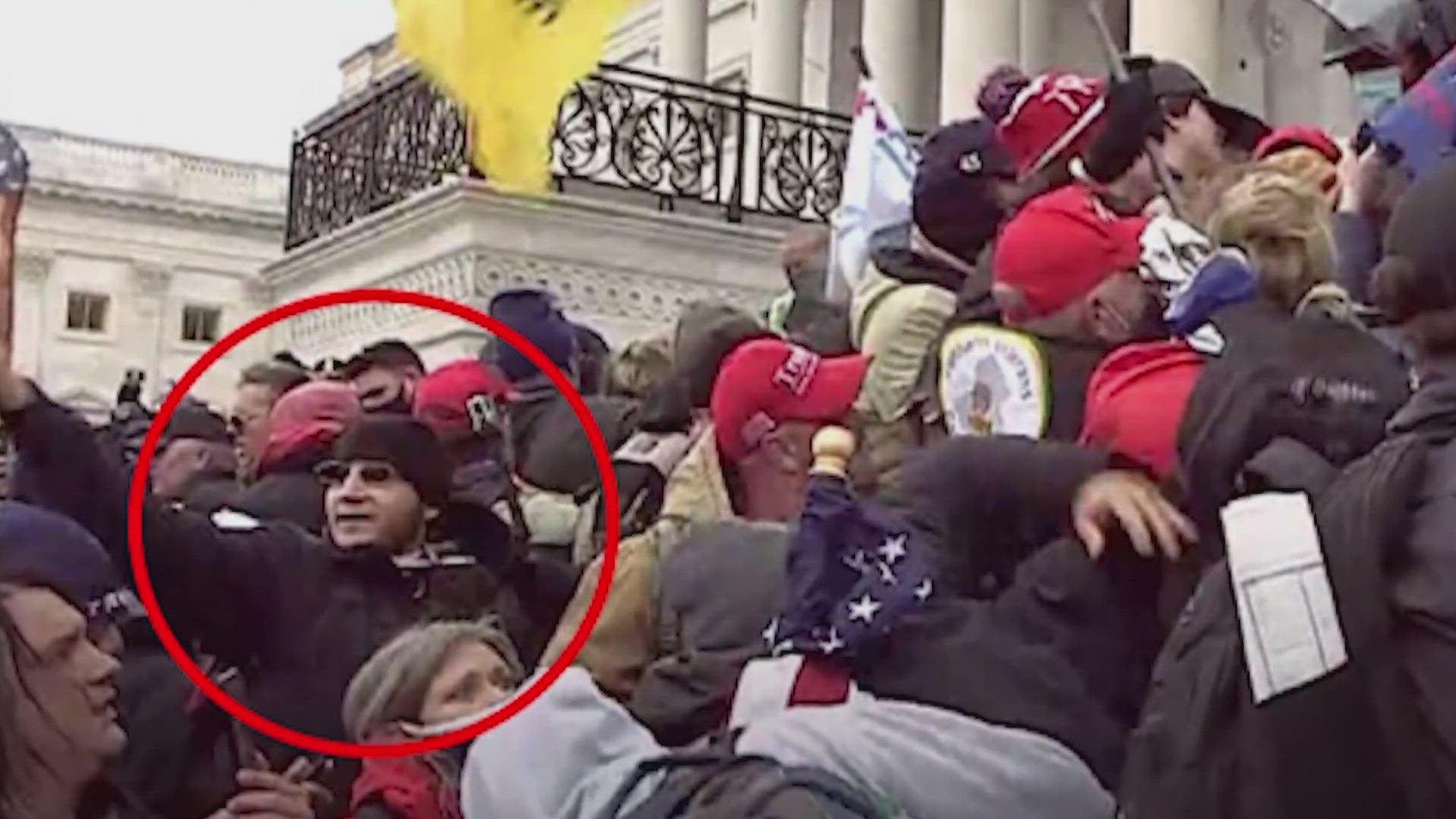SAN ANTONIO — A 26-year-old San Antonio man has become the latest to be charged in the Jan. 6 riots, when a huge crowd forcibly entered the U.S. Capitol by pulling down police barriers and rushing the building in early 2021.
Steven Hassel was one of those rioters, the FBI alleges in court documents, accusing him of helping to dismantle those barriers and creating "space for the crowd to surge forward." Those documents include photos purporting to show Hassel participating in the insurrection, the aftermath of which has resulted in nearly 1,500 arrests and about 950 convictions so far.
He is also accused of having encouraged others to move toward the building when he and others reached the Capitol steps, where law enforcement had mobilized in an unsuccessful attempt to hold the crowd back.
"Hassel approached this police line as well, and is seen in open-source video waving rioters behind him forward toward the Capitol," the FBI said, adding he was in the building for about 17 minutes after police were overwhelmed by the chaos.




A joint session was being held to certify the results of the 2020 presidential election at the time that rioters were approaching the Capitol.
A coworker of Hassel's, who as of November 2022 worked for Allied Universal Security in San Antonio, helped identify him to federal authorities through photos and video surveillance before the FBI received direct confirmation. According to documents, he declined to interview with investigators.
Hassel was arrested Wednesday and is accused of having violated federal law. He's been charged with obstructing law enforcement during a civil disorder, entering a restricted building and disruptive conduct, among other offenses. Court documents say he arrived in Washington on Jan. 4 along with another man, David Arredondo, who earlier this year pled guilty to charges related to his participation in the riots.
There's no online record of a criminal history for Hassel in Bexar County.
On Tuesday, special counsel Jack Smith filed a new indictment against former President Donald Trump over his efforts to undo the 2020 election, in relation to Jan. 6. It narrows the allegations against Trump in the aftermath of a Supreme Court opinion that conferred broad immunity on former presidents, but retains the accusations that Trump and his allies exploited the chaos of Jan. 6 in an attempt to further delay the certification of Biden's victory.

